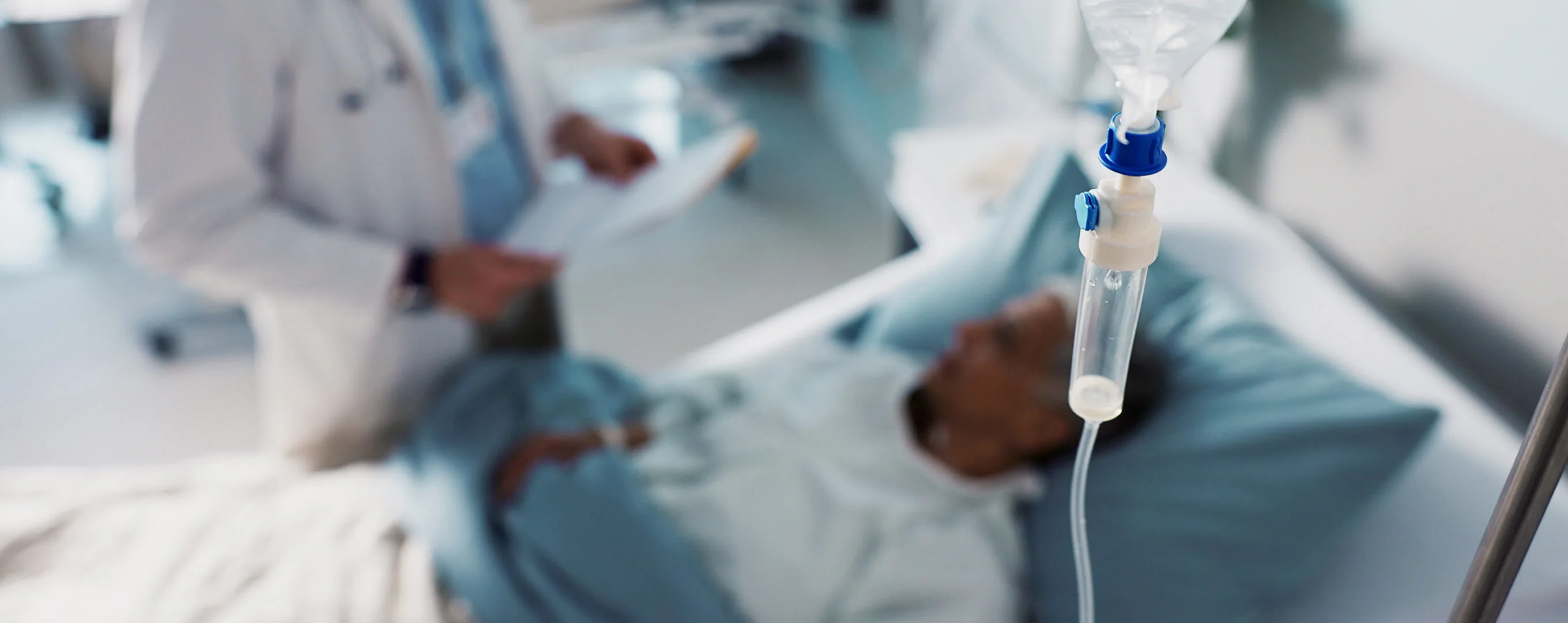How Ready-to-Use Medications May Help Reduce Hospital Complexity
Health & Patients
Hospital environments are complex. In addition to the stream of patients with urgent medical needs, hospitals are facing a well-documented shortage of qualified healthcare professionals, high costs of doing business, increased regulations, and a multitude of sources from which they need to seek payment for their services.
Given these organizations are also tasked with their most important job—caring for patients—companies like Endo are developing solutions to simplify operations and ease burdens for hospitals. Ready-to-use, or RTU, products may offer a number of benefits: streamline and conserve resources, speed care to patients, and reduce the potential for errors.
Improved Use of Resources
As hospitals confront workforce shortages, opportunities to streamline operations and maximize the staff they have can be critical. RTU products eliminate the need to prepare or transfer products before they are administered to patients. Not having to ask the pharmacy or the nurse to prepare an infusion can optimize workflow and support quality patient care, allowing staff to focus on other critical tasks.1 Feedback from Endo’s own customers confirms that they appreciate the ease and efficiency of RTU products.
Speed to Patient
In addition to conserving valuable resources within the hospital, having access to RTU products can save time and speed care to patients.1 When injectable products need to be mixed at the hospital pharmacy, there can be a gap between the time a clinician wants to see his or her patient treated, and the medicine being infused and delivered to that patient. Depending on how busy or how well-staffed the pharmacy is, there could be a delay in getting that medicine to the patient. RTU products eliminate the need for these steps and can be delivered at the bedside in a fraction of the time.
Less Room for Error
Delivering medicines to patients efficiently and accurately is paramount in the hospital setting. RTU products can also reduce the risk of errors when dispensing injectable medicines.2 Normally, there are multiple steps to prepare an injectable medicine properly, and each represents an opportunity for potential human errors.
A 2020 Institute For Safe Medication Practices survey of clinicians found that nearly one-third of respondents reported “personally experiencing errors during preparation/admixing medications/infusions.”3 The Journal of Infusion Nursing concluded that one way to reduce this risk of errors is to use manufacturer-prepared, ready-to-administer prefilled syringes, when appropriate.
TruDelivery®: Endo’s RTU Platform
As we support our customers across all healthcare settings, Endo continues to develop and deliver RTU products that may help address the real burdens our customers face.
In early 2023, we launched TruDelivery®, our ready-to-use product line and platform. The response? Hospital pharmacy customers have been eager to hear about TruDelivery® and discover our products’ potential to introduce efficiencies to their hospital systems, many of which are dealing with the resource constraints mentioned above.
Scott Sims, Senior Vice President & General Manager, Injectable Solutions and Generics at Endo, emphasized the importance of the platform for our business, customers, and patients: “Here at Endo, we pride ourselves on providing solutions for customers—easing burdens and challenges so they can focus on delivering quality patient care—and that’s exactly what TruDelivery® delivers. Our growing portfolio of RTU products may help hospitals reduce waste and costs, optimize convenience and workflow, and reduce the chance for preparation error.”
Find out more about our RTU products at TruDelivery.com.
References:
1. van der Linden P, Douchamps J, Schmitt C, Forget D. Ready-to-use injection preparations versus conventional reconstituted admixtures: economic evaluation in a real-life setting. Pharmacoeconomics. 2002;20(8):529-536.
2. Billstein-Leber M, Carrillo CJD, Cassano AT, Moline K, Robertson JJ. ASHP guidelines on preventing medication errors in hospitals. Am J Health-Syst Pharm. 2018;75(19):1493-1517.
3. Malik P, Rangel M, VonBriesen T. Why the Utilization of Ready-to-Administer Syringes During High-Stress Situations Is More Important Than Ever. Journal of Infusion Nursing. 45(1):p 27-36, January/February 2022. | DOI: 10.1097/NAN.0000000000000451



